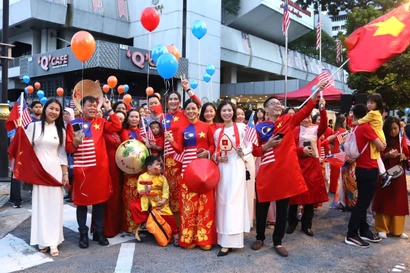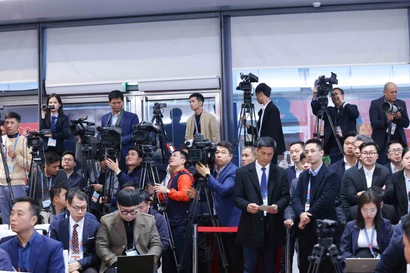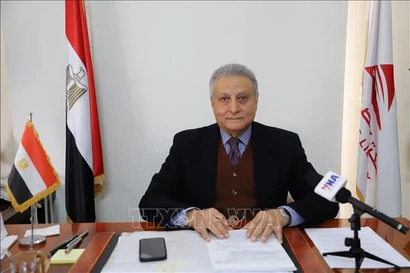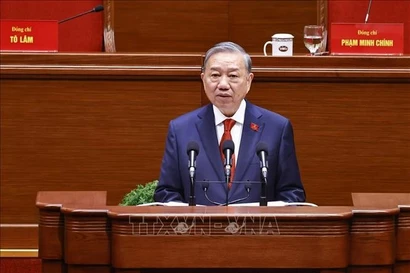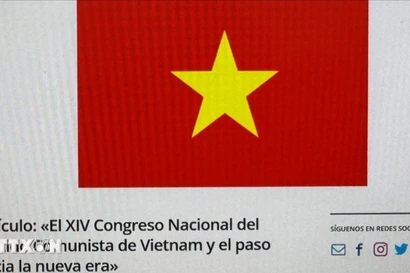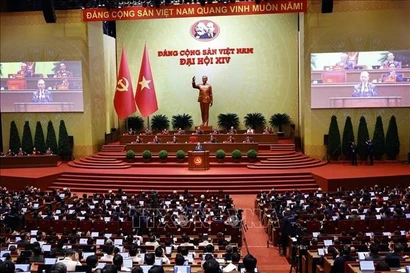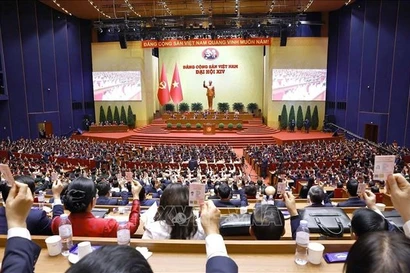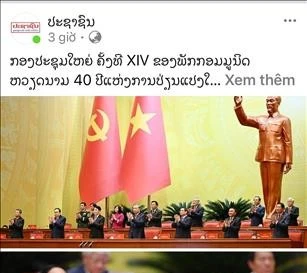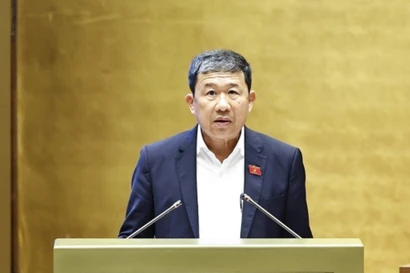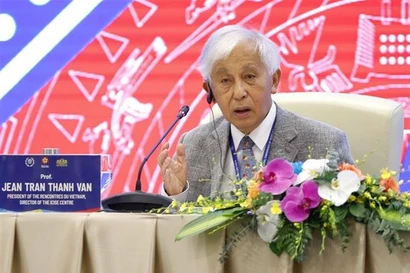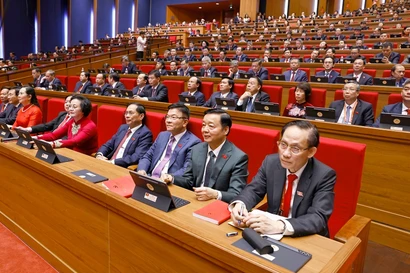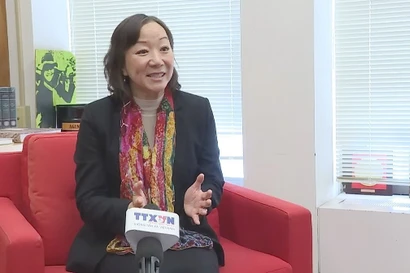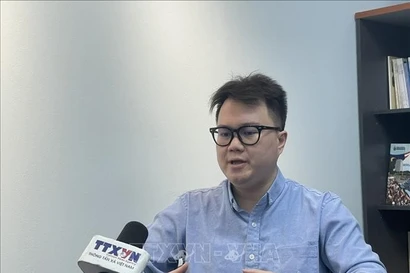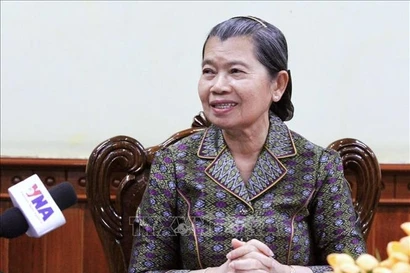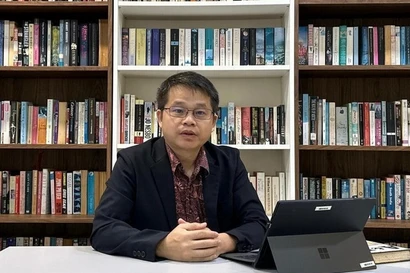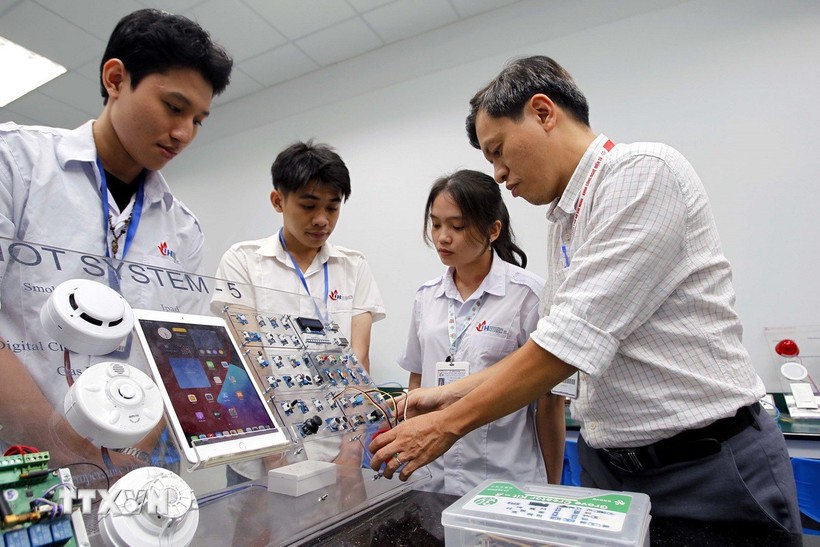
Hanoi (VNA) – The 14th National Party Congress will be a defining political event shaping Vietnam’s development path in the new period. As preparations for the congress are accelerating, members of the Vietnam Lawyers’ Association have offered their thoughtful and responsible opinions to help improve the draft documents of the event.
Renewing development mindset
Prof. and Dr. Phan Trung Ly, former Chairman of the National Assembly (NA)’s Legal Affairs Committee, voiced full support for the structure and content of the draft Political Report and major policies proposed in the document. He described the draft as strategic, comprehensive, insightful, and practical, reflecting the Party’s deep sense of responsibility towards the people and the nation’s future.
Among the main groups of tasks and measures, he paid particular attention to those for institutional perfection and the building of a socialist rule-of-law state, with reforming legislative thinking the most crucial element. According to him, legislative thinking determines the quality of laws and the capacity of a law-governed state.
He noted that Vietnam has achieved major progress in lawmaking, with a more complete legal system covering almost all aspects of life. The NA’s legislative process has become more professional, and the roles of citizens, businesses, and scholars are increasingly respected. However, from a legal – political science perspective, some fundamental “bottlenecks” remain.
These include a management-oriented lawmaking mindset, which focuses on administrative control rather than enabling innovation and development.
Some laws still “legalise” management measures instead of creating an open legal framework for digital transformation and integration. The legislative process itself also needs improvement in planning, drafting, appraisal, and consultation, while public feedback remains largely formalistic.
Vietnam needs a comprehensive renewal of legislative thinking and the lawmaking process to build a modern rule-of-law state, Ly emphasised.

Prof. and Dr. Tran Ngoc Duong, former Vice Chairman of the NA Office, highlighted the importance of the Party’s orientation of “continuing to renew the development thinking”. He said this is a visionary direction guiding the country in an era of technology, competition, and development.
The draft document, he said, demonstrate a strong political will to keep renewing the development thinking to help Vietnam overcome challenges and seize new opportunities to become an upper-middle-income country by 2030 and a high-income nation by 2045.
Duong suggested the continued renewal of development mindset should be shown as a major viewpoint in the draft Political Report. Details of the continued renewal should also been clarified, including the shift from a “command-and-control” mindset to one that is facilitative and service-oriented; from “centralised” to “decentralised and delegated” governance; from pure economic growth to sustainable and inclusive development; and from measuring progress by “quantity” to “quality.”
Clarifying new contents, emphasising practical reforms
Dr. Nguyen Danh Chau from the Vietnam Bar Federation commended the thorough and scientific preparation of the draft document, noting that it demonstrate the strategic vision, a reformed mindset, and a comprehensive and systematic approach of the Party. He also appreciated the innovative approach of merging three separate reports into a single one – the Political Report of the 13th Party Central Committee, which ensures clarity, practicality, conciseness, and easier dissemination.
Chau supported the assessment of the achievements made during the implementation of the 13th Congress’s resolution and 40 years of Doi moi (Renewal). However, he suggested the draft should further elaborate on limitations in the health and education sectors, and stress the responsibility of officials, especially leaders, in tackling institutional bottlenecks, short-term thinking, and vested interests.
Phan Van Lam from the Hanoi-based Institute for ASEAN Legal and Economic Studies agreed with the draft’s economic directions but proposed clarifying breakthrough targets for the 2026–2030 period, particularly GDP growth, labour productivity, and the digital economy’s share.
He suggested the draft emphasis institutional issues like improving regulations to reduce administrative intervention and compliance costs, enhancing transparency and competition, protecting property rights, and ensuring the efficient allocation of public investment, especially in digital infrastructure, energy, logistics, and green urban development.
He added that the new viewpoints on culture, human, education, and science – technology development should be further clarified and regarded as strategic breakthroughs to enhance Vietnam’s internal capacity and competitiveness. The draft should also propose detailed measures for building an open, flexible, and globally integrated education system, helping nurture a generation of Vietnamese citizens who are knowledgeable, ethical, and firm in the new era.
Lam went on to say that Vietnam should move from growth driven by cheap labour to one powered by productivity, science - technology, and governance. Education should shift from input control to outcome-based quality assurance, from qualifications to competence and skills, and from one-time training to lifelong learning.
He also called for promoting digital culture and digital citizenship, emphasising honesty, discipline, creativity, social responsibility, legal awareness, digital, foreign language and financial skills, and data ethics and safety in the AI era./.
